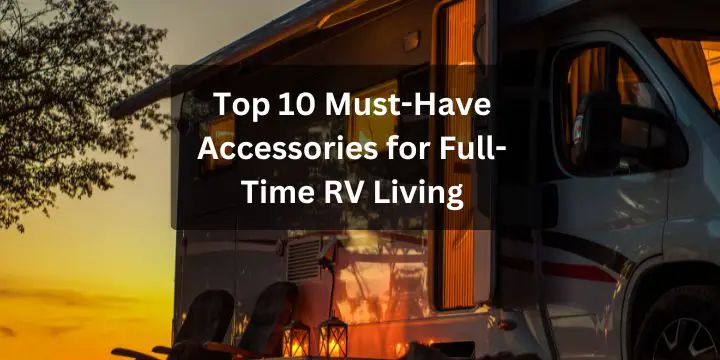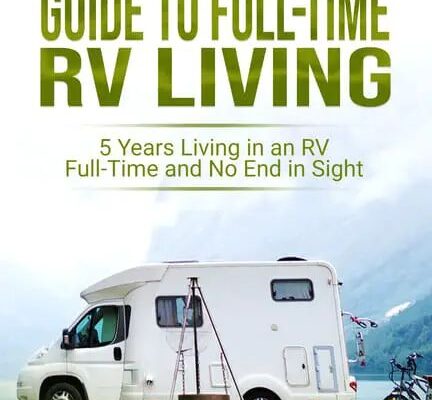
RV living is often portrayed as a romantic and carefree lifestyle. Social media is filled with picturesque images of vans parked by crystal-clear lakes, cozy nights under a blanket of stars, and the joy of waking up to a new view every day.
But behind the Instagram filters and curated captions lies a reality that’s far more complicated. Before you pack up your life and hit the road, here are the darker truths about RV living that you need to know.
1. The Financial Strain of Freedom
Living in an RV might seem like a way to cut down on expenses, but the costs can add up quickly. Here are some common financial challenges:
- Initial Investment: Whether you’re buying a brand-new Class A motorhome or a used travel trailer, the initial cost can range from tens of thousands to hundreds of thousands of dollars.
- Maintenance and Repairs: RVs are essentially homes on wheels, and they require constant upkeep. Repairs can be expensive, especially for major systems like plumbing, electrical, or the engine.
- Campground Fees: Staying at campgrounds or RV parks isn’t always cheap. While some offer affordable rates, others charge premium prices, especially in popular locations.
- Fuel Costs: RVs are not known for their fuel efficiency. Frequent travel can lead to hefty gas bills, particularly for larger rigs.

2. The Challenge of Finding a Place to Stay
While RV living promises mobility, finding a suitable spot to park your home isn’t always easy:
- Overcrowded Campgrounds: During peak seasons, many campgrounds and RV parks are fully booked months in advance.
- Limited Boondocking Options: Free camping spots, also known as boondocking, are increasingly difficult to find as public lands face restrictions and overuse.
- Zoning Laws: Parking your RV in urban areas or residential neighborhoods can be tricky due to strict zoning regulations and local ordinances.
3. The Reality of Limited Space
Life in an RV means adjusting to a much smaller living space. While this can encourage minimalism, it also comes with its own set of challenges:
- Clutter and Organization: With limited storage, keeping your RV tidy requires constant effort.
- Privacy Issues: Sharing a confined space with a partner or family members can strain relationships, especially during bad weather or long stretches on the road.
- Lack of Amenities: Forget about a full-size kitchen or bathroom—most RVs have scaled-down versions that require significant compromise.
4. The Wear and Tear on Mental Health
The allure of freedom can come with a heavy emotional toll:
- Loneliness: While the open road offers solitude, it can also feel isolating. Meeting new people is exciting, but leaving friends and family behind can be emotionally challenging.
- Uncertainty: The unpredictability of RV living—from breakdowns to last-minute changes in plans—can be stressful.
- Decision Fatigue: Constantly choosing where to go, where to park, and how to navigate unfamiliar areas can lead to mental exhaustion.
5. The Environmental Impact
Despite the appeal of being closer to nature, RV living isn’t always eco-friendly:
- Fuel Consumption: Large RVs guzzle gas, contributing to carbon emissions.
- Waste Management: Managing waste responsibly can be challenging, particularly when boondocking.
- Resource Usage: Limited water and energy supplies require careful management, but excessive usage can still occur, especially with less eco-conscious setups.
6. The Myth of “Ultimate Freedom”
While RV living promises freedom, it’s not without constraints:
- Constant Planning: Freedom to roam often means constantly researching destinations, routes, and availability.
- Mechanical Dependencies: An RV is a machine, and machines break down. When your home is also your vehicle, a breakdown can derail your entire life.
- Connectivity Issues: Staying connected on the road isn’t always easy. Internet access can be unreliable, making it difficult for remote workers or those who rely on digital connectivity.
Is RV Living Still Worth It?
Despite these challenges, RV living isn’t all doom and gloom. Many people thrive in this lifestyle, embracing its challenges as part of the adventure. The key to success is preparation—both mental and practical:
- Budget Wisely: Account for all potential expenses, including emergency repairs and unexpected costs.
- Plan Ahead: Research destinations and have backup plans for where to stay.
- Adjust Expectations: Understand that RV living isn’t always glamorous, but it can be deeply rewarding.
- Build a Community: Connect with fellow RVers to share tips, resources, and companionship.
Final Thoughts
RV living offers a unique way to explore the world, but it’s not without its downsides. The dark truths of this lifestyle aren’t meant to discourage you but to prepare you for the reality behind the dream. If you’re ready to embrace the challenges as well as the rewards, RV living can be an incredible adventure. Just remember: the open road is as unpredictable as it is beautiful, and it’s up to you to navigate its twists and turns.
Read More: RV Electrical – Everything You Need to Know (Guide)
New to RV Living? Start the Right Way — From Day One.
Avoid costly beginner mistakes and start RV living with confidence using a simple, proven system.
Download the RV Beginner Starter PackInstant download · Beginner-friendly · Secure checkout


